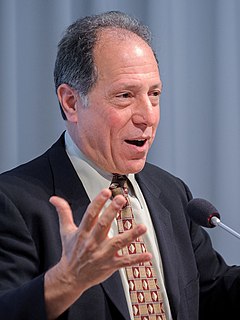Ein Zitat von Shane McCrae
Die Menschen haben Angst davor, verschiedene Arten von Poesie, etwa Konfessionalismus, von politischer Poesie zu trennen. Aber der Konfessionalismus ist in hohem Maße ein Ausdruck von Rassenprivilegien und Klassenprivilegien. Ich glaube nicht, dass es immer ein blinder Ausdruck dieser Privilegien ist, aber es hat seinen Ursprung in ihnen, in der Politik, die damit verbunden ist.
Verwandte Zitate
Der Konfessionalismus bezieht sich auf farbige Schriftsteller. Ich denke, konfessionelle Poesie ist auf ihre Art sehr katholisch, großes C. Eine der prägenden Ideen des Konfessionalismus, die über die Psychoanalyse hinausgeht, ist ein sehr tatsächlicher Sündenfall. Und zumindest in Amerika nehmen farbige Menschen nie diese Gnadenposition ein wie weiße Menschen. Daher denke ich, dass der konfessionelle Modus streng genommen für nicht-weiße Schriftsteller in gewisser Weise nicht möglich ist.
Bürgerpoesie ist öffentliche Poesie. Es ist politische Poesie. Es geht um die harten Dinge des Lebens: Geld, Kriminalität, Geschlecht, Unternehmensexzesse, Rassenungerechtigkeit. Es bringt nicht nur unsere Rituale zum Ausdruck, sondern auch unsere Probleme und sogar unsere Werte; In diesen Gedichten geht es nicht um rustikale Ferien.
Poesie ist kreativer Ausdruck; Prosa ist konstruktiver Ausdruck ... mit kreativ meine ich originell. In der Poesie werden die Worte im Akt des Denkens geboren oder wiedergeboren. Wenn ein echter Dichter schreibt, gibt es zwischen den Worten und dem Gedanken keine Zeitspanne, beide passieren zusammen, und sowohl der Gedanke als auch das Wort sind Poesie.
Das Privileg des Privilegs besteht darin, dass die Bedingungen des Privilegs unsichtbar gemacht werden. Es ist ein Luxus, nicht über Rasse, Klasse oder Geschlecht nachdenken zu müssen. Nur diejenigen, die von einer Kategorie an den Rand gedrängt werden, verstehen, wie mächtig diese Kategorie ist, wenn sie gegen sie eingesetzt wird.
Meine größte Angst vor einer Welt, in der Rassenanpassungsoperationen alltäglich werden, besteht darin, dass sie dann zum Ausdruck aller Arten von Klassenprivilegien werden. Sie haben eine wirklich dystopische Gesellschaft, die gespalten ist zwischen den Menschen, die es sich leisten können, rassistisch verändert und vervollkommnet zu werden, und denen, die das nicht können.
Es fällt mir sehr schwer, mich mit der neuen Mittelschicht Indiens zu identifizieren. Diese sehr patriotische und neoliberale Gruppe, die Religion und Wirtschaft miteinander vermischt. Ich finde sie sehr lästig. Sehr schwer zu mögen. Sie sind privilegiert, aber sie wollen nicht über ihr Privileg sprechen. Es ist schwierig, unter diesen Leuten Poesie zu finden. Eine Art verborgener Geist der Schönheit.
Es gibt eine Gleichheit in der amerikanischen Poesie, die meiner Meinung nach nicht das ganze Volk repräsentiert. Es stellt eine Poesie des Augenblicks dar, eine Poesie des Ausweichens, und damit habe ich Probleme. Ich glaube, Poesie war schon immer politisch, lange bevor sich Dichter mit der Seite und dem Leerraum auseinandersetzen mussten. . . es ist natürlich.
Die Göttliche Komödie ist ein politisches Gedicht, und wenn Sie sagen, dass es in der Poesie nicht darum geht – er wird immer aus dem Kontext gerissen zitiert – dass „Poesie nichts bewirkt“, heißt das nicht, dass Sie mit den Schultern zucken und nicht versuchen, etwas geschehen zu lassen. Und Dante spürte, dass es um Poesie ging, es gab einen Standpunkt; Das ist nicht mein Standpunkt, es ist das orthodoxe mittelalterliche Christentum, und damit habe ich meine Probleme. Er hatte nicht das Gefühl, dass man einen so wichtigen Teil des Lebens einfach ausschließen könne – diese Dinge liegen uns am Herzen, und aus dieser Sorge heraus schreiben wir Gedichte.
Nach Pope entwickelten die Menschen zu Beginn der Romantik die Idee, dass Vorstellungskraft und nicht Vernunft eine besondere Form des Wissens sei und dass ihr bester Ausdruck in der Poesie bestehe. Deshalb sollte Poesie nicht versuchen, das zu tun, was bloße Prosa tut: Informationen zu vermitteln oder Argumente über Ideen zu liefern.
Ich kann mich nicht als politischen Schriftsteller bezeichnen – ich glaube nicht, dass ich es verdient habe, und ich funktioniere als politischer Schriftsteller nicht in der Art und Weise, wie es viele der Schriftsteller tun, die ich bewundere. Es ist nicht nur eine Frage des Kontexts, woher ich schreibe – es gibt vieles in der amerikanischen Gesellschaft, worüber dringend geschrieben werden muss. Ich denke, Ihre Arbeit beschäftigt sich immer mit Politik im lockereren Sinne des Wortes – und diese Lockerheit ist selbst eine Art Privileg – denn Politik und Kultur sind offensichtlich miteinander verflochten.
Der Unterricht ist etwas, worüber ich ernsthaft nachdenke und nach dem ich meine Politik zu organisieren versuche. Ich denke, es gibt viele Romane, die sich überhaupt nicht mit Klassenfragen befassen, und in denen geht es weniger um soziale Privilegien als bei mir. Aber es ist besser, darüber zu reden und vielleicht zu scheitern.































